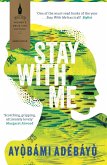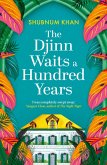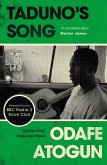Ayòbámi Adébáyò's debut is convincing across the board. At the centre is Yejide, a young woman torn between old traditions and a modern partnership. The young couple would actually be happy if it weren't for the all-overshadowing pressure to have a child. In Nigerian society, a childless woman is
considered a tragedy that she probably brought on herself. And so Yejide's mother-in-law tries to…mehrAyòbámi Adébáyò's debut is convincing across the board. At the centre is Yejide, a young woman torn between old traditions and a modern partnership. The young couple would actually be happy if it weren't for the all-overshadowing pressure to have a child. In Nigerian society, a childless woman is considered a tragedy that she probably brought on herself. And so Yejide's mother-in-law tries to solve the supposed misfortune pragmatically, as has always been done in the Yoruba tribe: She provides her son with a young second wife. I particularly liked the humorous passages in which outdated, ossified traditions are criticised with a wink. For example, when Yejide kneels in front of her mother-in-law as a sign of respect until her legs go numb, while her husband uses his mother's long monologues to make shopping lists: As his mother is illiterate and cannot read what he has written, he is only too happy to let her believe that he values her advice so much that he immediately writes down every word.
Adébáyò is not only a great storyteller - I could hardly put the book down, I was so captivated by the story - but she also displays extraordinary psychological intuition. The author maps tangled familial relationships with nuance and precision, and her intimate understanding of her characters’ fears, yearnings and self-delusions. The novel is a breathtaking mirror of today's Nigeria and a touching family story full of love, betrayal, grief and hope, full of deep feelings and yet without any kitsch.








